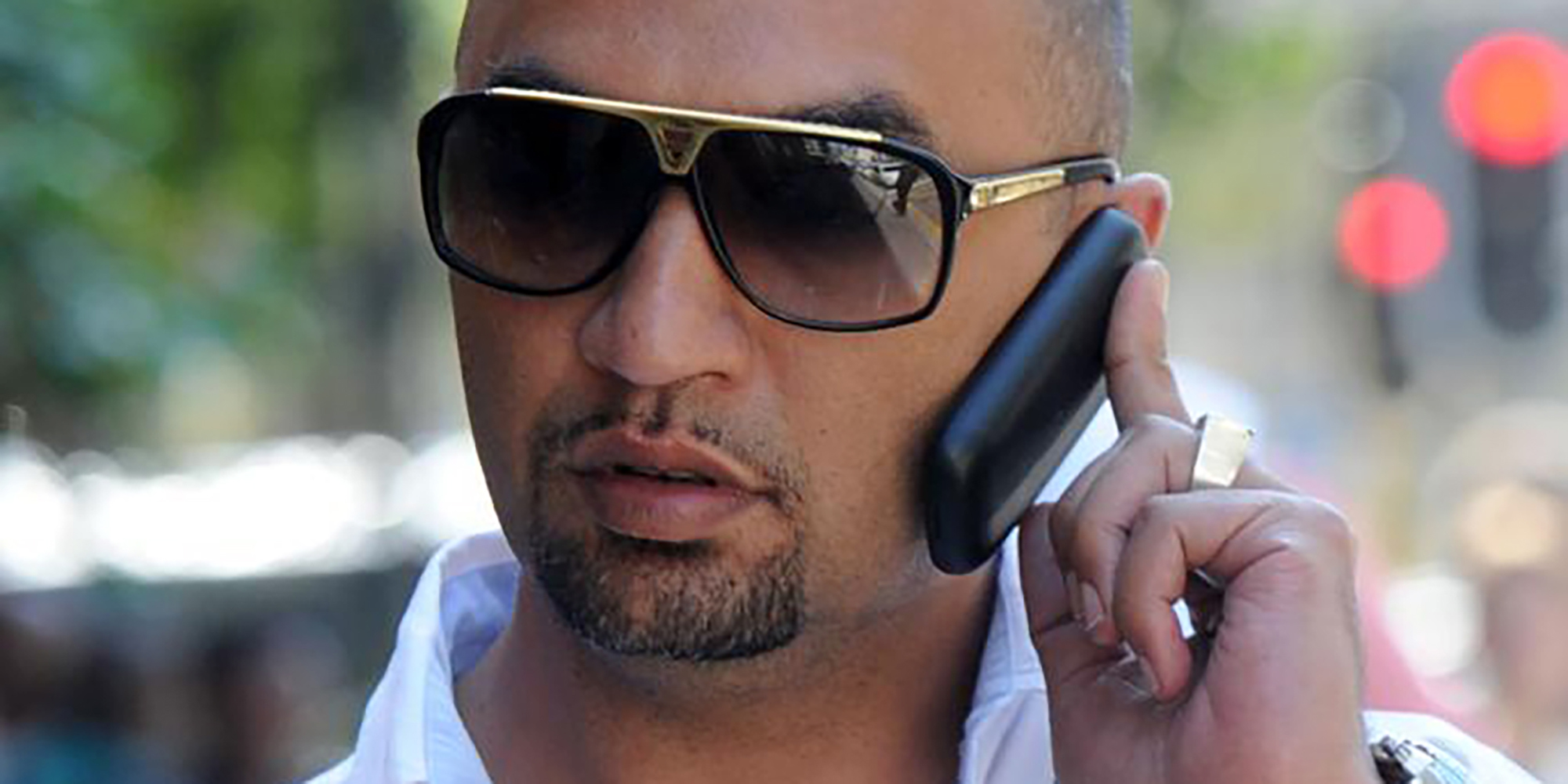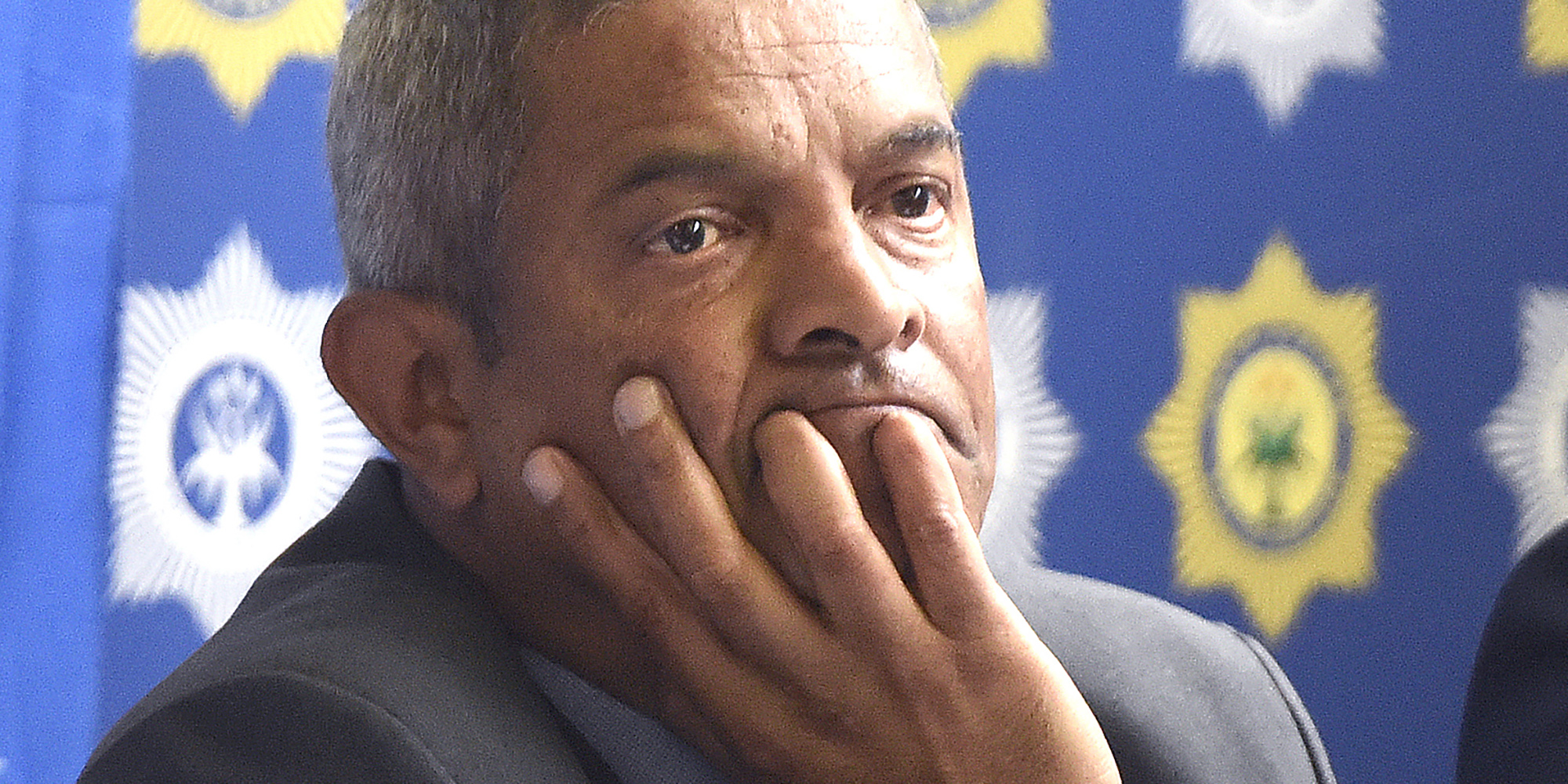Home › Forums › South Africa Today Headline News-NOW HOSTED ON LOVING LIFE TV › 28s gang ‘capture’ top Western Cape cops, prosecutors’ lives at risk – judge sounds corruption alarm
- This topic is empty.
Viewing 1 post (of 1 total)
-
AuthorPosts
-
2022-10-26 at 17:40 #135797
 Nat QuinnKeymaster
Nat QuinnKeymasterA rattling high court judgment says evidence points to 28s gangsters having wormed their way into the Western Cape’s cop management, accessing Crime Intelligence reports and meetings during which policing strategies are discussed.
‘The evidence suggests not only a capture of some lower-ranking officers in the [South African Police Service] SAPS.
“The evidence suggests that the senior management of the SAPS in the province has been penetrated to the extent that the 28 gang has access to the table where the Provincial Commissioner of the SAPS in the Western Cape sits with his senior managers and lead[s] them in the study of crime, develop[s] crime prevention strategies and decide[s] on tactics and approach to the safety and security of inhabitants of the Western Cape.
“This includes penetration of and access to the sanctity of the reports by specialised units like the Anti-Gang Unit and Crime Intelligence, to the Provincial Commissioner.”
These words are contained in a Western Cape High Court judgment by Judge Daniel Thular relating to a gang case involving crimes including several murders, delivered on 17 October 2022.
Claims of army members selling guns to gang
Among the rattling revelations in the judgment is that a policeman allegedly plotted with gangsters to get someone into jail so that the person could be murdered while in custody.
Another section of the judgment says: “The gang had protection and assistance from corrupt members of the police. [This] included transportation of its drugs from court to prison…
“These allegations, including the involvement of members of the army in selling arms and ammunition to the gang, which arms are used in the killings, rape and robbery of other people to advance the aims, objectives and the hegemony of the 28 gang in general and the Mobster gang in particular, surely created a sense of shock and outrage to the law-abiding members of the South African society, especially in the Western cape.”
The judgment rings the alarm, in an unprecedented way, on dodgy relationships between police officers and criminals in South Africa’s gangsterism capital, the Western Cape.
For decades there have been constant suspicions that corrupt police officers have partnered with gangsters – like certain cops did under apartheid.
These suspicions were amplified following the September 2020 assassination of detective Charl Kinnear, who was investigating an array of suspects including colleagues at the time of his killing.
The Western Cape High Court judgment seems to mark the first time that allegations of police officers operating corruptly with gangsters have been detailed in-depth – in a document that is publicly accessible.
Judge Thulare made the findings in a matter against Elcardo Adams and Alfonso Cloete.
The duo unsuccessfully tried to get a decision that they should not be released on bail, overturned.
Mobsters
Adams was alleged to be the head of the Mobsters, which had ties to the 28s gang, and which was involved in crimes involving drugs, firearms and hijackings.
He denied that.
Cloete also denied being a gangster.
It was suspected Adams took over as head of the Mobsters after the January 2016 murder of Nathaniel Moses in the Western Cape town of Strand.
A previous media report said an affidavit in the Moses murder alleged that police were involved in his killing.
Adams now stands accused of several crimes including other killings.
Daily Maverick previously reported on the 28s gang’s history that was rooted in robbery – the gang had grown from inside prisons to extend across several areas, with the Western Cape as its stronghold.
In the book, The Enforcers: Inside Cape Town’s Deadly Nightclub Battles, the Mobsters gang was described as a faction of the 28s and its members were effectively hitmen-for-hire.
The book also said a witness in a previous and related case once claimed the Mobsters’ leadership “was connected to detectives who either helped members who were arrested to get released on bail or tried to ensure that the cases against them were withdrawn.”
Prosecutors’ lives in permanent danger
In terms of Thulare’s judgment, aside from dubious connections between the police and the Mobsters, it also shed light on dangerous intent regarding the gang targeting the state.
It said: “The evidence further shows that the 28 gang and the Mobsters in particular are breathing heavily on the necks of public prosecutors who guide the investigation of organised crime and institute criminal proceedings against its members.
“Such prosecutors are under a constant and permanent threat to their lives and that of their close families. The evidence also shows that the Mobsters have now moved gear upwards and are interfering with the decorum of the courts and the independence of judicial officers, and testing the judicial oath of office, especially the word ‘without fear’.”
Previously, police had picked up that members of the gang “were following the State Advocate dealing with the matter and his security detail”.
The judgment said there had been a previous police project on cracking down on the Mobsters. This had run when Nathaniel Moses was still alive, which would have been before 2016.
Witnesses killed and cops implicated
While the first project had been running, three of nine Section 204 witnesses (who became witnesses for the State, thereby possibly indemnifying themselves from prosecution) were murdered.
“The Mobster gang came to know that the three made statements to the police,” the judgment said.
“The gang called them traitors and scavengers. They were killed even before the cases were enrolled. The other 204 witnesses went into hiding.”
During the first project, suspicions of police officers working with the gang also surfaced.
 Nafiz Modack at court on 7 October 2020. (Photo: Gallo Images/Die Burger)
Nafiz Modack at court on 7 October 2020. (Photo: Gallo Images/Die Burger)“There were police officers who were implicated as having been used in the commission of some of the offences,” the judgment said.
Those officers were yet to be charged.
They had worked at the Kleinvlei police station in Cape Town “and were on the payroll of the Mobster gang”.
Cop ‘involved in killing in custody plot’
The judgment also shed some light on the gang activities some of the cops were allegedly involved in.
It said: “In one instance, it was planned with a policeman to arrest a person who was lured to be at a place where there would be drugs.
“The plan was to get the person into prison so that he could be killed. The policeman arrested the person at the specified date and place for drugs and the person was taken to prison.”
However, because of security at the jail, the person could not be killed in custody. “It was decided that the person should be bailed out and killed after he was released on bail,” the judgment said.
The person was later killed at a shebeen – allegedly on the overall orders of 28s gang boss George “Geweld” Thomas who in 2015 was convicted of crimes including several killings.
Thomas had influence over the Mobsters.
Murders, drugs and poison
Among the several allegations against Adams, which he denied, was that he gave instructions for two police officers – one identified in the judgment as Colonel Brown and the second as the investigating officer – to be murdered because they were investigating the Mobsters.
Adams also denied that he “would have injected [another accused in the case] with poison at the High Court when he was next to him”.
 Charl Kinnear was assassinated outside his home in Bishop Lavis, Cape Town. (Photo: Noor Slamdien)
Charl Kinnear was assassinated outside his home in Bishop Lavis, Cape Town. (Photo: Noor Slamdien)He faced charges in connection with the February 2018 murder of Hampshire “Hempies” Brown, who was shot dead in Cape Town.
“[Adams] denied knowing that the drug dealing business of the Mobsters… was suffering because Hempies Brown sold better quality drugs and was a street away, and this was the reason the Mobsters killed him,” the judgment said.
Previously claims involving dodgy police involvement with Western Cape gangs have emerged.
Guns-to-gangs
Project Impi is an example.
In December 2013, two police officers then based in the Western Cape – Jeremy Vearey and Peter Jacobs – launched Project Impi, which became known as the guns-to-gangs investigation.
There were allegations that police officers were involved in smuggling firearms, destined for destruction, to gangsters (including members of the 28s) in the Western Cape.
In June 2016, despite the critical investigation they were heading, both Vearey and Jacobs were effectively demoted in the province.
That same month, former police officer Chris Prinsloo was sentenced to an effective 18 years in jail for selling firearms that ended up with gang members in the Western Cape.
Daily Maverick previously reported that Prinsloo was released on parole years ahead of schedule.
In May 2021, Vearey was controversially fired over a series of Facebook posts.
For his part, Jacobs, who was national head of Crime Intelligence, and who claimed cops had abused the Secret Service Account, was transferred from there to head the police’s Inspectorate.
 Former SAPS Major-General Jeremy Vearey. (Photo: Gallo Images / Brenton Geach)
Former SAPS Major-General Jeremy Vearey. (Photo: Gallo Images / Brenton Geach)Kinnear’s ‘rogue’ intel complaint
Jacobs and Vearey were widely viewed as being aligned to Charl Kinnear, who nearly two years before his September 2020 assassination, complained to his bosses that a rogue unit of police officers, with ties to Crime Intelligence, were operating in the Western Cape and working against him and his colleagues.
Daily Maverick previously published articles on an Independent Police Investigating Directorate (Ipid) report, that was subsequently and controversially classified, relating to Kinnear’s assassination.
It found that a ”rogue” style unit of police officers in the Western Cape, linked to Crime Intelligence, indeed existed – this validated Kinenar’s complaint.
Ipid recommended that four of the unit’s members should face departmental charges. Its recommendations relating to the police and Kinnear’s killing are expected to be discussed in Parliament next month.
-
AuthorPosts
Viewing 1 post (of 1 total)
- You must be logged in to reply to this topic.
